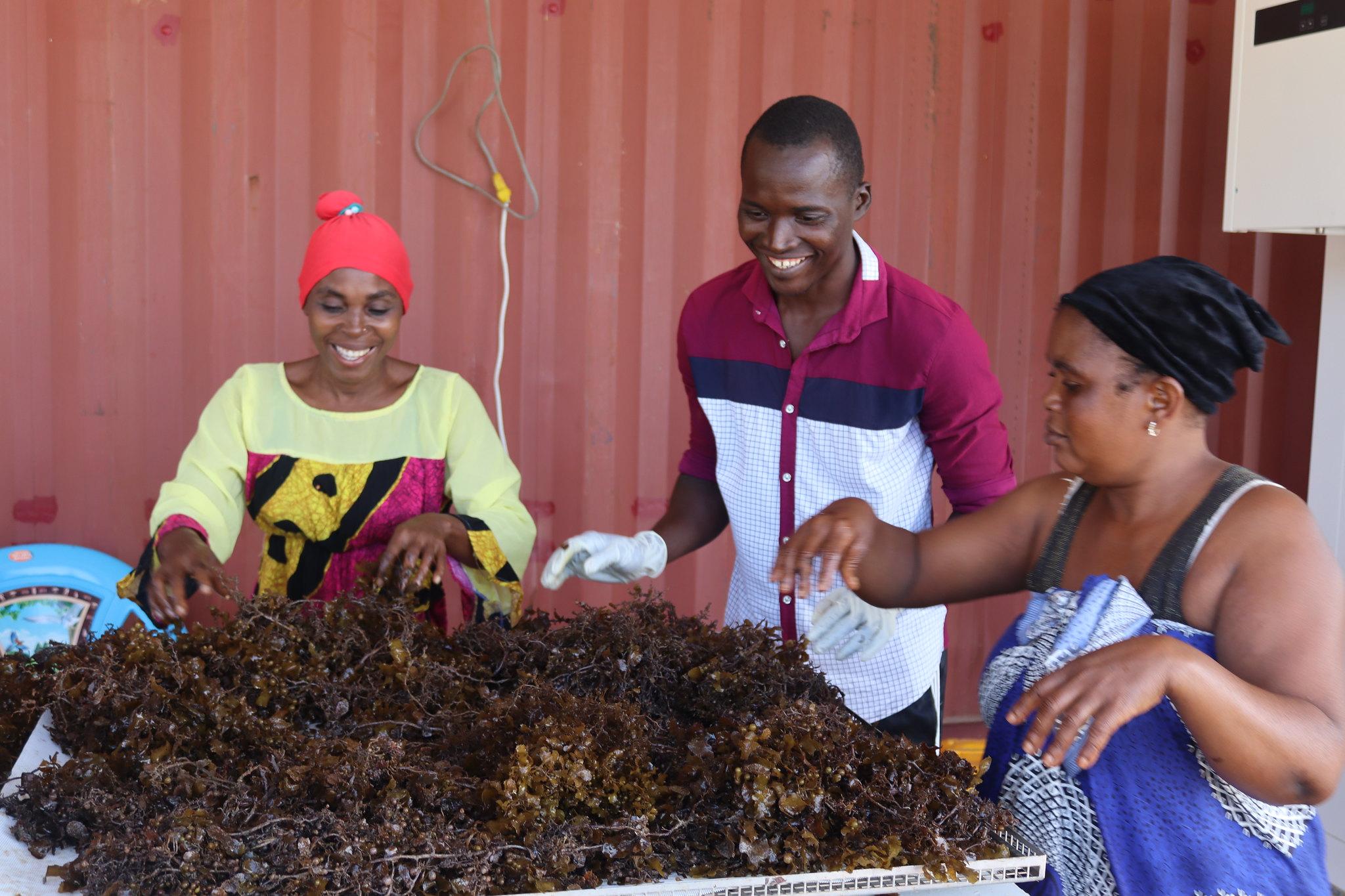Socio-technical perspectives for enabling adoption and scaling of sustainable and gender-transformative mariculture development

This information brief summarises the socio-technical gaps and opportunities critical for the adoption and upscaling of Integrated Multi-Trophic Aquaculture (IMTA) technology. Using a sociotechnical pathways approach, it specifically draws on social, technological, and institutional analyses on the barriers, challenges, and opportunities for leveraging IMTA of seaweed and fish as a low-carbon, gender-transformative, environmentally, and economically sustainable innovation for equitable empowerment in coastal Kenya.
The focus was on drivers and barriers to sustainable, inclusive development with specific bearing on gender equity and women’s economic empowerment in the growing aquaculture sectors. The review was used to develop a framework for assessment of the various mariculture technologies and systems that have been developed in coastal Kenya to understand the socio-technical positioning vis a vis IMTA, which is being tested and deployed under the Blue Empowerment Project in Coastal Kenya, by researchers working with the project Aquaculture of seaweeds and fish: opportunities for blue economic empowerment and COVID-19 resilience in Kenya.
The findings point out to the potential for IMTA as a socio-technical option that can enhance sustainable mariculture development in Kenya. This potential should be linked to social, environmental, and economic sustainability enhancement options.
Key Messages
- Despite the growth in marine fisheries and aquaculture sector in Coastal Kenya, sustainable challenges related to environmental and socio-economic impacts especially for differentiated gendered and social groups can hamper progress.
- There is need to deploy optimal mariculture socio-technical pathways that simultaneously enhance environmental sustainability, inclusive institutional options, and socio-economic development.
- IMTA can offer a socio-technical pathway for sustainable mariculture development in Kenya. However, the barriers and enablers for successful IMTA adoption relate to how it enables sustainability and gender and socially inclusive governance frameworks to stimulate economic opportunities especially for women and other marginalized groups in Coastal communities.

